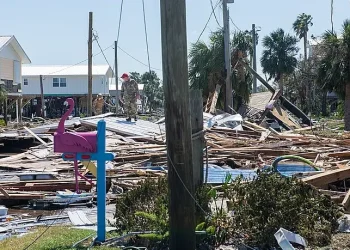President Trump has announced a new slate of appointments to the Homeland Security Advisory Council (HSAC), signaling renewed focus on securing the U.S. homeland.
With tech leaders, law enforcement, and political figures joining the council, the upcoming July 2 meeting promises to shape future national security policies.
A Reshaped Homeland Security Council Takes Shape
President Donald J. Trump and Secretary Kristi Noem have appointed a new group of leaders to the Homeland Security Advisory Council (HSAC).
The council, first created in the aftermath of 9/11, advises the Department of Homeland Security (DHS) on pressing national security challenges. The first meeting of the new council will take place on July 2, 2025, in Washington, D.C.
This updated council blends public and private sector expertise to support the administration’s “America First” security agenda. Members include state officials, technology pioneers, law enforcement leaders, and national security experts.
Strengthening Homeland Security Through Diverse Expertise
The HSAC provides real-world, independent advice to the DHS Secretary. President Trump’s latest appointments reflect a deliberate focus on national security, border protection, and emerging threats like cyberattacks.
In addition, the council’s composition demonstrates a shift towards integrating business, technology, and community voices alongside traditional law enforcement perspectives.
Who’s Who on the New Homeland Security Advisory Council
The following individuals have been appointed to advise on U.S. homeland security priorities:
Notable Appointees
-
Henry McMaster, Governor of South Carolina – Appointed as Chair, bringing state-level crisis management expertise.
-
Mark Dannels, Sheriff of Cochise County, Arizona – Offers frontline border security insight, particularly relevant to Arizona and the Southwest.
-
Marc Andreessen, Co-Founder of Andreessen Horowitz – A Silicon Valley leader focusing on technology-driven security solutions.
-
Rudolph W. Giuliani, Former Mayor of New York City – Brings historical crisis management experience from 9/11.
-
Omar Qudrat, Military Officer and Tech Executive – Adds community engagement and counter-extremism expertise.
-
Christopher “Chris” Cox, Founder of Bikers for Trump – Represents grassroots community perspectives.
-
Corey Lewandowski, Chief Advisor to the DHS Secretary – Ensures council recommendations align with administration priorities.
Council Member Backgrounds and Contributions
| Name | Role/Background | Area of Expertise |
|---|---|---|
| Henry McMaster | Governor, South Carolina | Crisis management, interagency cooperation |
| Mark Dannels | Sheriff, Cochise County, Arizona | Border security, law enforcement |
| Marc Andreessen | Co-Founder, Andreessen Horowitz | Technology, cybersecurity, innovation |
| Rudolph W. Giuliani | Former Mayor, New York City | National crisis response, public safety |
| Omar Qudrat | CEO, Military Officer | Community trust, counter-extremism |
| Christopher “Chris” Cox | Grassroots Political Leader | Public engagement, community safety |
| Corey Lewandowski | Chief Advisor to DHS Secretary | Policy alignment, strategic implementation |
Implications for National and Local Security
The appointments are expected to influence both national and local security efforts. In Arizona, Sheriff Mark Dannels’ inclusion brings border region concerns directly to the federal level. This development is likely to resonate with communities along the Southwest border.
Meanwhile, the addition of Marc Andreessen highlights the growing role of technology and cybersecurity in protecting critical infrastructure. The council’s broad membership reflects an understanding that national security today requires cooperation between government, business, and communities.
What to Watch Ahead of the Council’s First Meeting
The Homeland Security Advisory Council will convene for the first time under its new leadership on July 2, 2025, at DHS headquarters in Washington, D.C.
Topics likely to be discussed include:
-
Border security and immigration enforcement
-
Cybersecurity threats and emerging technology risks
-
Crisis management and disaster response strategies
-
Public engagement and building trust with communities
While recommendations from the HSAC are advisory, they often shape how the Department of Homeland Security allocates resources and implements security policies.
Security, Technology, and Community at the Forefront
President Trump’s appointments to the Homeland Security Advisory Council reflect a strategic mix of expertise designed to address modern security challenges.
With a combination of law enforcement, business leaders, and political advisors, the council is positioned to influence future homeland security priorities significantly.
As the council prepares for its first meeting, stakeholders across the country — from local communities to the tech industry — will be watching for new directions and practical solutions to strengthen national security.
Sources: US Department of Homeland Security.
Prepared by Ivan Alexander Golden, Founder of THX News™, an independent news organization delivering timely insights from global official sources. Combines AI-analyzed research with human-edited accuracy and context.







